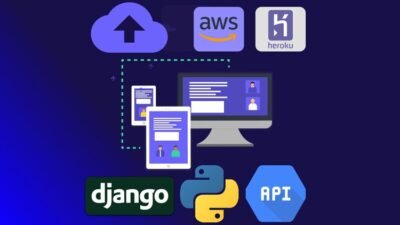If you’re eager to dive into the world of Angular and want a hands-on, project-based approach, "30 Days of Angular: Build 30 Projects with Angular" is an excellent choice. This comprehensive course on Udemy promises not only to strengthen your foundational knowledge but also to provide you with the practical skills needed to become proficient in this powerful framework. Let’s unpack what this course has to offer!
What you’ll learn
Throughout the course, you’ll engage with a variety of important skills and technologies that are essential for becoming an adept Angular developer. Here’s what you can expect to learn:
- Angular Basics: Gain a strong grasp of Angular fundamentals, including components, modules, and services.
- Routing: Learn how to navigate through your applications using Angular’s routing features.
- Forms Management: Understand reactive and template-driven forms for effective data handling.
- State Management: Get familiar with state management techniques to create dynamic applications.
- HttpClient: Utilize the HttpClient module for API interactions, allowing your projects to fetch and manipulate data effortlessly.
- Unit Testing: Discover best practices for testing Angular applications to ensure that your code is robust and error-free.
- Deployment: Understand the deployment process, enabling you to turn your projects into live applications.
The course emphasizes practical learning by getting you to build actual projects along the way, ensuring that you understand how to apply what you learn in real-world scenarios.
Requirements and course approach
Before diving into the course, it’s important to have a few prerequisites in hand:
- Basic Knowledge of JavaScript: Familiarity with JavaScript concepts will help you understand Angular better.
- HTML and CSS Basics: An understanding of how to structure web pages will facilitate your learning experience.
- A Code Editor: You should have a code editor like Visual Studio Code installed on your machine.
The course follows a structured, hands-on approach, guiding you through 30 distinct projects over the span of 30 days. Each project is designed to teach you a specific Angular concept or technique, gradually building your expertise. The instructor often includes helpful tips and best practices, making complex topics easier to digest.
Who this course is for
This course caters to a broad audience, including:
- Beginners: If you’re new to web development or Angular, this course will lay a solid foundation.
- Intermediate Developers: For those with some Angular experience, the course presents a fantastic opportunity to enhance your skills through practical exercises.
- Anyone Interested in Project-Based Learning: If you thrive on learning through doing, this course’s project-centric approach will be engaging and fulfilling.
Regardless of your background, the course is designed to cater to varying levels of experience and learning styles.
Outcomes and final thoughts
By the end of "30 Days of Angular: Build 30 Projects with Angular," you will walk away with a robust portfolio of projects that demonstrate your technical skills. You will not only be able to create functional web applications but will also understand how to tackle common challenges faced by Angular developers.
The friendly and approachable teaching style of the instructor, coupled with a wealth of practical exercises, makes the course a rewarding experience. Whether you’re aiming to build applications for personal projects, a professional portfolio, or a career in web development, this course equips you with the tools you need to succeed.
Overall, "30 Days of Angular: Build 30 Projects with Angular" is an excellent resource for anyone looking to deepen their understanding of Angular while gaining hands-on experience with real-world projects. This course is a solid investment in your education and professional development. Happy coding!





